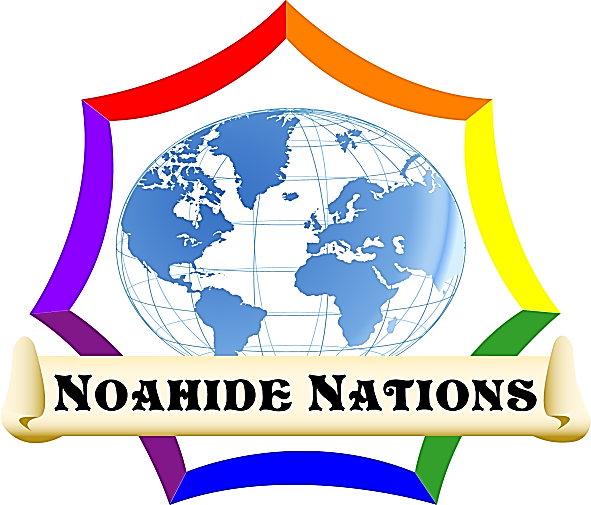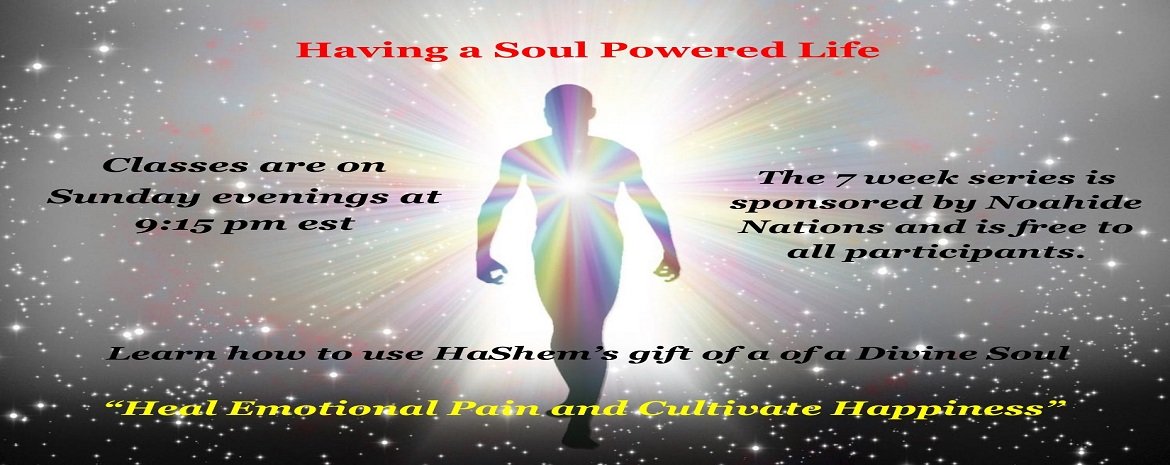
Ger Toshav in Israel?
- Category: News
- Hits: 15785

There was an article posted recently on the news regarding a non-Jew in Israel being given a status of Ger Toshav by the Chief Rabbi of Israel.
You can see the original article HERE though it is all in Hebrew. Here is a rough translation of the article via google translate:
"After 2,500 years: Chief awarded the status of "resident stranger"
The court, headed by Chief Rabbi David Lau gave the class George Streichman, native Ukraine, he sold land in the country in the "allowance". Streichman gained a special status because he is a foreigner who believes in the God of Israel
Two thousand five hundred years after that law in Israel gave man becoming a resident stranger - a monthly event: The law led by Chief Rabbi David Lau, Rabbi Zion Boaron and multi Algrably score this week granted special status George Streichman, native Ukraine, a grandchild grandparent Jews who immigrated to Israel within the framework of the Law of Return, and lives today in Ramat Gan. Behind the move is the Sabbatical year approaching.
Unlike the sale of chametz on Pesach, the practice of selling land not yet Sabbatical year prohibition creates a conflict with 'lo techanem, preventing the sale of land in the Land of Israel to non Jewish people. Accordingly, over the years made sure the purchaser all the less there will be an idolater, but this year decided rabbinate find Ben Noah 'foreigner who fulfills the seven commandments and believe in the God of Israel, to give it the status of "resident stranger" and sell to him, the land.rite sale took place on Wednesday of this week at the Jerusalem Rabbinate, and was attended by the Chief Rabbi David Lau, Deputy Minister of Religious Services Eli Ben- Dahan, Rabbi Yaakov Ariel, Rabbi Avraham Yosef and head of the Israel Lands Administration Benzi Lieberman. The sale includes both the fields of farmers who chose B'hitr sale, and the state land. Over the past few weeks have signed Hhlkaim forms under which they transfer their rights chief rabbis, are the part transferred the rights to the Israel Lands Administration, and Lieberman sold them along with the country's land Streichman. After a tense relationship between the Chief Rabbinate office for religious services, it appears that prior to the Sabbatical efforts were made Shared safely get through the year. Beshmita previous state comptroller criticized the authorities for unnecessary red tape procedures, and consequently became time to contact Deputy Minister Ben Dahan. Chief Rabbi David Lau introduced amendments to the wording of the sale and improved the halachic level. The sale itself took time out of work: Each form was brought to the perusal of the rabbis, and then inspection by Ben Dahan - only after crossed the approval of the Chief Rabbinate and the Ministry of Religious Services was signing event was also attended by Rabbi Uri Sharki, standing at the top of the 'everlasting covenant' - the center World to Noah, who served as a spiritual guide Streichman. After years of dealing with the issue of Noah, for him it was the realization of a dream. "What happened in the Court of the week is the start of a change for the better and the handling of humanity by Israel," he said in a conversation with Makor Rishon, "I seek to enshrine the status of 'Noah' law. Currently, a pair that both defined as being comfortable not can not marry in Israel. I work so that they will be recognized by the authorities and by the Chief Rabbinate could marry wedding ceremony tailored to them. " Sharki Noah sees the issue of Jewish basic point. "This is a basic method which seeks to Judaism, to repair the world Kingdom of the Almighty," he says. "We did not invent it. While we were in constant battle for survival was difficult for us to take care of others, but we Mssveno political independence play a role in humanity." In response to the claim that efforts should be concentrated on the Jews and the boys to other nations, saying Sharki "On the contrary, I argue that the Jews' departure from their tradition also stems from the lack of a universal message of Judaism, in truth there is in it."
In response to this, Rabbi Bloomestiel of Yeshiva Pirchei Shoshanim wrote the following after contacting the Chief Rabbi's office in Israel:
RABBI AVRAHAM CHAIM BLOOMENSTIEL
SHOCHET · SOFER · MO REH HORA'AH
YESHIVA PIRCHEI SHOSHANIM
RECHOV RABBI AKIVA 164
BNEI BRAK, ISRAEL
September 23, '14
To Whom It May Concern:
I have received numerous letters and inquiries in the previous 24 hours from Noahides and others regarding a recent news report. This report states that the Chief Rabbinate recently awarded ger tosav status to a non-Jew in Israel. Unfortunately, this report is being circulated by dishonest persons as "proof' that ger toshav status may, and possibly must, be given to Noahides today. I have spoken with the office of the Chief Rabbi and confirmed that the official position of the Chief Rabbinate is that there is no status of ger toshav in our times. The article in question must be read carefully and in context to understand the issue at hand. The upcoming Hebrew year of 5775 is a shemittah year. The Torah, at the beginning of Leviticus 25, commands a Shabbat for the land of Israel, stating:
"Six years shall you sow your field, and six years shall you prune your vineyard and gather in their produce. But the seventh year shall be a Shabbat of solemn rest for the land, a Shabbat to HaShem; you shall neither sow your field nor prune your vineyard. That which grows of itself of your crops you may not reap nor shall you gather the grapes of your vine; it shall be a year of rest for the land."
The observance of shemittah presented serious problems to the early pioneers who resettled the land in the 19th century. Many poskim, authorities on Torah law, permitted the sale of farm land to non-Jews during the shemittah year. This sale permitted agriculture to continue and produce food and resources for the settlements. This sale is known as the heter mechira. Though controversial, many continue to rely upon it even today. The heter mechira is similar, conceptually, to the Jewish practice of selling chometz, leaven, to a non-Jew over Passover. By doing so, the Jew minimizes his liability for owning leaven during the Passover holiday.
To ensure that the sale of leaven is incontestable in its validity, numerous stringencies in the Torah laws of purchasing and selling are obsetved in the transaction. Most of these stringencies are not required or observed in the normal course of business. Many are employed by the sale of leaven to remove any possible question as to the validity of the sale.
As with the possession of leaven over Passover, the Jewish cultivation of land during the Shemittah year is a serious transgression. To remove any possible question as to the validity of the sale of land to Mr. Streichman (the non-Jew mentioned in the report), the Chief Rabbinate included every possible stringency in the process. One such stringency was having Mr. Streichman take an oath as a ger toshav before a beis din, a Jewish court.
Non-Jews are not permitted by Torah law to own land in Israel. However, the Rabbinate has relied on the definition of ger toshav; explained in the Meiri, Raavad, and the Rambam as understood by the Kesef Mishnah to Hilchos Issurei Biah 14:8 and Hilchos Avodas Kokhavim 10:6 to permit any civilized, non-idolatrous person to own land and reside in Israel. The Rabbinate has never required anyone to become a ger toshav before a beis din. This is because they acknowledge that the halacha is that we do not grant such a status anymore.
There is no transgression, though, in allowing a non-Jew to appear before a beis din and pledge to observe the Noahide laws. For the sake of heter mechira only was the Chief Rabbinate strict to require such a pledge. Their official position, as confirmed today, is that no such pledge is necessary or made in our times to reside in Israel or otherwise be identified as a Noahide.
I hope that this brief letter will help to allay any confusion or unfortunate misinformation.
Rabbi Avraham Chaim Bloomenstiel
General Editor
The Pirchei Shoshanim Noahide Laws Project


 French (FR)
French (FR)  English (UK)
English (UK) 




